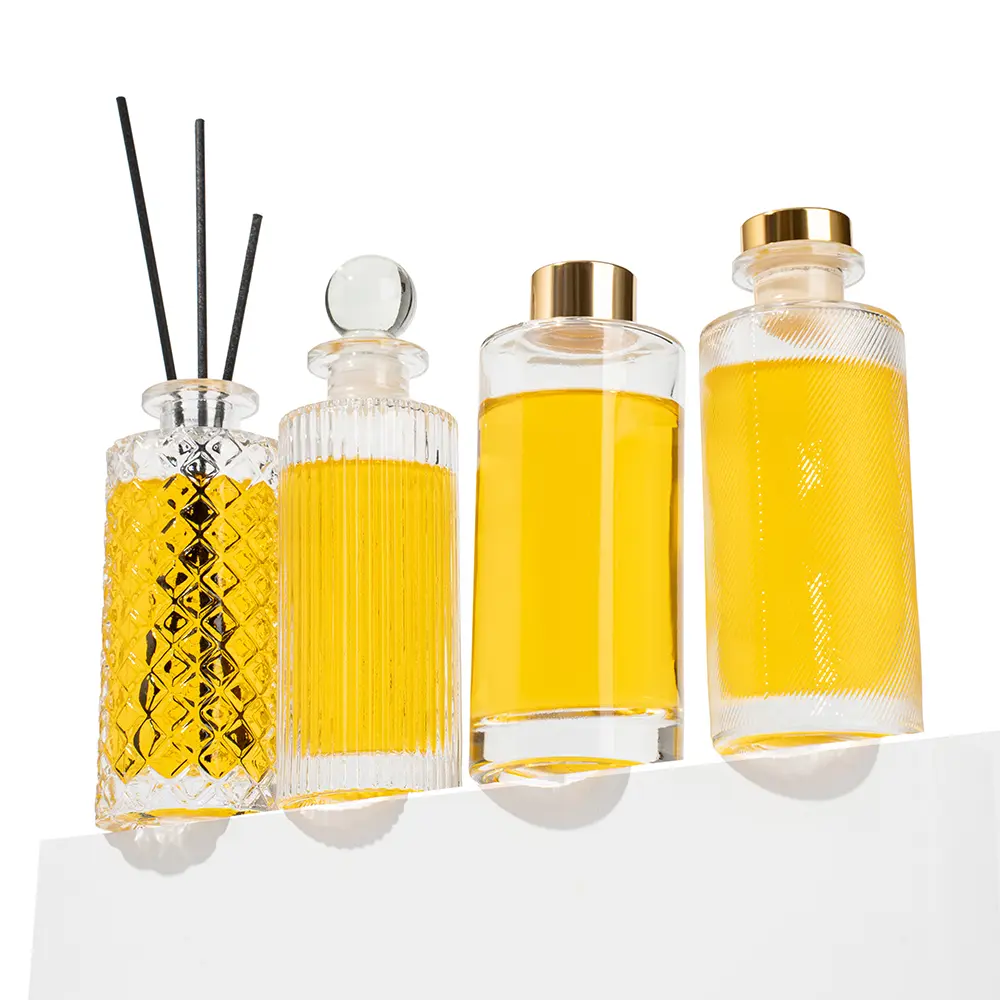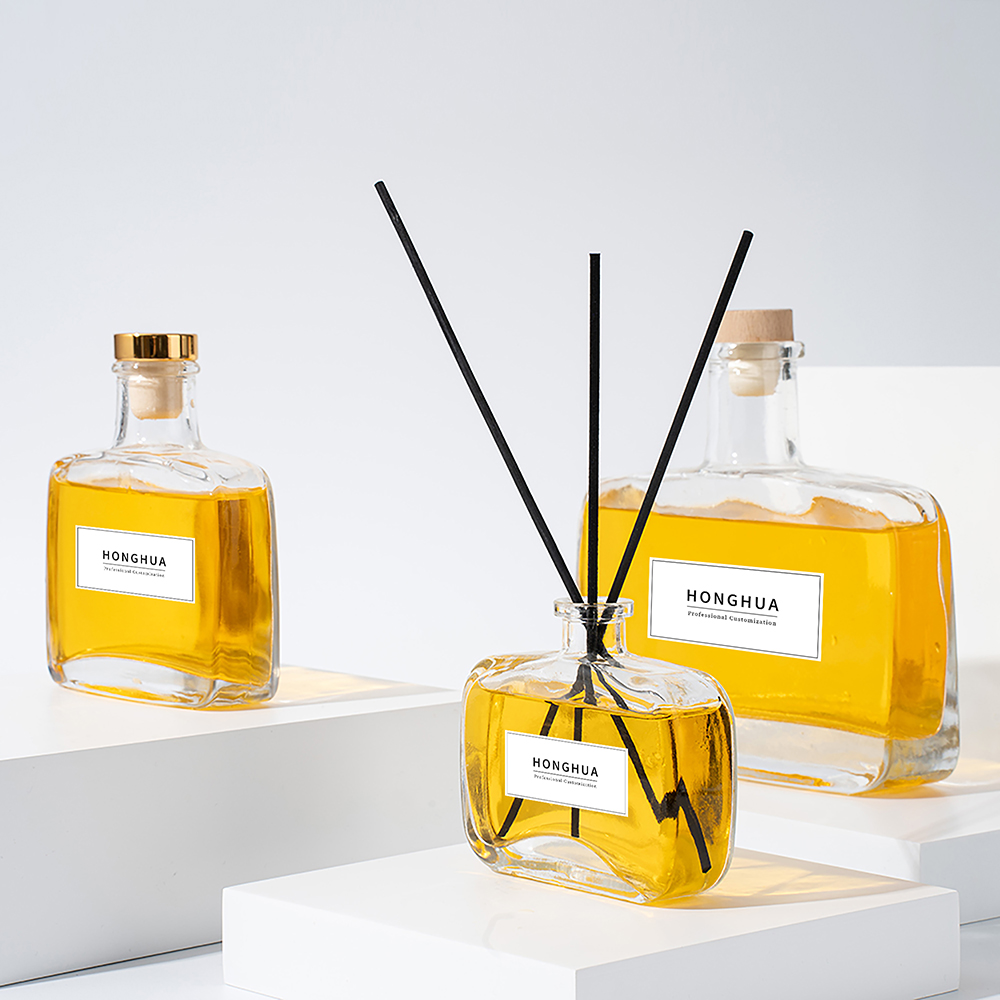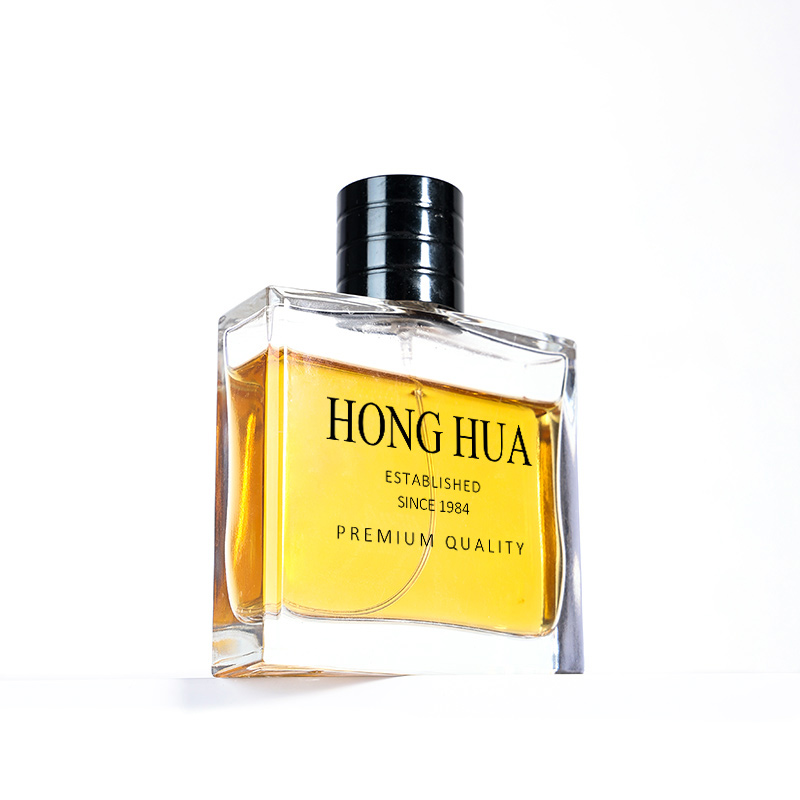Choosing the right glass container isn't just about aesthetics; it's a critical decision that impacts your product's shelf life, effectiveness, and customer perception. A mistake here can lead to spoiled products and a damaged brand reputation. This article is your definitive guide. We'll delve into the science behind glass color, explore the specific benefits of each type, and provide actionable advice to help you select the perfect glass bottle for your products, ensuring they remain as potent and pristine as the day they were made.
What Are the Fundamental Differences Between Amber and Clear Glass?
At the most basic level, the difference is obvious: one is colored, and one is not. But in the world of product packaging, this visual distinction represents a fundamental trade-off between protection and presentation. Clear glass is like a crystal-clear window. It offers unparalleled clarity, allowing customers to see the exact color, texture, and consistency of the product inside. For a beautifully colored lotion, a vibrant bath oil, or a premium beverage, this transparency is a powerful marketing tool.
On the other hand, amber glass acts as a protective shield. Its deep, rich color isn't just for show; it's a functional feature designed to block harmful light waves. Think of it like a pair of high-quality sunglasses for your product. While you can't see the contents as clearly, you can be confident they are shielded from the degrading effects of light.
The core of the differences between amber and clear glass lies in their interaction with the light spectrum, particularly ultraviolet (UV) radiation. This is where the choice moves from a simple aesthetic preference to a scientific necessity for many products. Choosing the right glass bottle requires you to know whether your product's stability is compromised by light exposure.
How Does Amber Glass Protect Against UV Light?
The protective power of amber glass comes down to its specific chemical composition. As a manufacturer, I can tell you that we create this color by adding iron, sulfur, and carbon to the molten glass mixture. This specific recipe gives the glass its characteristic amber hue, which is incredibly effective at absorbing light, especially in the harmful ultraviolet and blue light spectrums.
So, how does this UV protection work? Light travels in waves of different lengths. Shorter wavelengths, like UV light, carry more energy and are more likely to cause chemical reactions that can degrade a product. These reactions can break down active ingredients, alter scents, change colors, and reduce the overall efficacy and shelf life. Amber glass is specifically formulated to absorb nearly all radiation with wavelengths shorter than 450 nanometers. This provides a robust barrier against the entire UV spectrum.
Here's a simple breakdown of how different glass types handle UV rays:
| Glass Type | UV-A Protection (320-400 nm) | UV-B Protection (280-320 nm) | Key Benefit |
|---|---|---|---|
| Amber Glass | Excellent | Excellent | Maximum protection for highly sensitive products. |
| Cobalt Blue Glass | Good | Good | Good protection with a premium, distinctive look. |
| Green Glass | Fair | Fair | Moderate protection, common for wine. |
| Clear Glass | Poor | Poor | No protection; offers maximum product visibility. |
The key takeaway is that the protection provided by amber glass is unmatched. Its ability to absorb a large amount of the light spectrum makes it the gold standard for light-sensitive formulations. This is why amber glass blocks virtually all damaging rays, making it the safest best choice for fragile products.

When Is It Okay to Use Clear Glass Bottles?
While amber glass is superior for protection, clear glass bottles absolutely have their place. In fact, for many products, they are the preferred option. The decision to use clear glass hinges on one primary factor: the stability of your product's ingredients when exposed to light. If your formulation is not sensitive to light, then the benefits of showcasing your product can outweigh the need for UV protection.
Consider products like hand soaps, certain lotions, and some food items. For these, the risk of degradation from light exposure is minimal. In these cases, using clear glass containers becomes a strategic marketing choice. It allows you to:
- Showcase Natural Colors: If you have a beautiful, naturally colored botanical body wash, a clear glass bottle lets that color shine through.
- Highlight Texture: For unique textures, like a gel-based serum or a scrub with visible exfoliants, transparency is key.
- Build Consumer Trust: Allowing customers to see exactly what they are buying can create a sense of honesty and transparency, building trust in your brand.
Ultimately, clear bottles are for presentation. They are an excellent choice when product degradation from UV light is not a concern. As a supplier, we often see brands use clear glass bottles for products intended for use in environments with low light, such as bathrooms, or for products with a very fast turnover rate where long-term light exposure isn't an issue.
How Do Amber Bottles Compare to Cobalt Blue and Green Glass?
While the main debate is often amber vs clear glass, it's important not to forget the other players on the field: cobalt blue glass and green glass. Both of these offer a middle ground between the total protection of amber and the complete transparency of clear glass. From my experience in glass production, each color has its own unique properties and ideal use cases.
Green glass, commonly seen in wine bottles, offers a moderate level of UV protection. It's effective at blocking some light, which helps to prevent oxidation in wine and some beers, but it is not as comprehensive as amber glass. It provides a classic, traditional look and is often chosen for that aesthetic appeal as much as for its protective qualities.
Cobalt blue glass is a more premium option. It's visually striking and offers better UV protection than green glass, though still slightly less than amber. The rich blue hue is created by adding cobalt oxide to the molten glass. This type of glass is often used for high-end water, certain spirits, and luxury cosmetic products where a distinctive and sophisticated look is desired. Blue glass requires a precise manufacturing process to achieve its consistent, deep color. The main advantage of cobalt glass bottles is that they offer good protection while still allowing some visibility of the product level inside, which can be a plus for consumers.
In summary, choosing the right glass color is a balancing act. If your absolute top priority is protecting a highly sensitive to light product, nothing beats amber. If you desire a premium aesthetic with good protection, cobalt blue is an excellent choice. If you need moderate protection with a traditional feel, green glass is a solid option.

Why Are Beer and Essential Oil Bottles Predominantly Amber?
Have you ever opened a bottle of beer that has been left in the sun and immediately noticed a "skunky" smell and taste? That is a direct result of a chemical reaction caused by UV light. Light reacts with compounds from the hops in beer, creating the unpleasant flavor. This is precisely why beer bottles are almost always made from brown or amber glass. The amber glass helps to block the specific wavelengths of light that trigger this reaction, preserving the beer's intended flavor. Clear glass offers no such protection, which is why beers sold in clear bottles must be kept in closed, light-proof packaging until the moment of consumption.
The same principle applies with even greater importance to essential oil products. Essential oils are highly concentrated, volatile organic compounds. Their complex chemical structures are extremely fragile and can be easily broken down or altered by UV radiation. This degradation doesn't just reduce the oil's therapeutic benefits; it can also alter its scent profile completely.
For any business in the aromatherapy or natural wellness space, using amber glass bottles is non-negotiable. It ensures that the essential oil retains its purity and potency from the production line to the end consumer. This is why you'll often see high-quality aromatherapy oil bottles made from amber glass, as it guarantees the integrity of the delicate fragrance within. The amber glass provides the necessary shield to keep these precious oils safe.
As a Factory Owner, How Is Colored Glass Made?
As someone who oversees the glass production process daily, I find the creation of colored glass fascinating. It’s a precise science that happens at scorching temperatures. The process for making any glass bottle starts with a base mixture of sand, soda ash, and limestone, which is heated in a furnace to over 1500°C (2700°F) until it becomes molten glass.
To create colored glass, we introduce small, carefully measured quantities of minerals and metal oxides into this molten mixture.
- For Amber Glass: We add a combination of iron oxide (rust) and sulfur. The interaction of these elements in the high-heat, low-oxygen environment of the furnace creates the iron-sulfur compounds that give the glass its signature amber color and UV-absorbing properties.
- For Green Glass: We typically use iron oxide as well, but under different furnace conditions (more oxygen), along with chromium oxide.
- For Cobalt Blue Glass: A very small amount of cobalt oxide is added. Cobalt is an incredibly powerful colorant, so only a tiny bit is needed to produce a deep, rich blue.
- For Red Glass: This is one of the most expensive colors to produce, traditionally requiring the addition of gold chloride.
Achieving a consistent color across a production run of thousands of bottles requires extreme precision in both the recipe and the furnace conditions. Any variation can lead to changes in the hue and, more importantly, the level of UV protection. This is a key area where a factory's experience and quality control matter. When you work with an established supplier, you're not just buying a glass bottle; you're buying the expertise required to create a stable, reliable, and protective glass container every single time.

What Products Absolutely Need Amber Glass Packaging?
While we've touched on beer and essential oils, the list of products that benefit from amber glass is extensive. Choosing the right glass is paramount for any product containing natural, volatile, or light-sensitive ingredients. If your product's value is tied to its chemical composition, you need to protect it.
Here is a list of product categories where amber glass bottles and amber glass jars are the industry standard for a reason:
- Pharmaceuticals: Prescription medications, over-the-counter drugs, and vitamin supplements often contain active pharmaceutical ingredients (APIs) that can degrade in light, reducing their effectiveness.
- Essential Oils & Aromatherapy: As discussed, protecting the volatile aromatic compounds is crucial for both scent and therapeutic properties.
- Natural & Organic Skincare: Products containing ingredients like Vitamin C, retinol, antioxidants, and natural plant extracts are highly susceptible to oxidation and degradation from UV light. Even premium creams benefit from the protection of round amber cosmetic jars.
- Herbal Tinctures and Extracts: Concentrated plant-based remedies rely on their complex chemical profiles, which must be shielded from light to remain effective.
- Gourmet Oils & Vinegars: High-quality culinary oils, especially cold-pressed varieties, can go rancid or lose their flavor profile when exposed to light.
- Homeopathic Remedies: These delicate preparations are often packaged in amber glass to preserve their integrity.
Essentially, if a product's formula is "active," it likely needs the protection that only amber glass can provide. Using clear glass for these products is a significant risk that can lead to customer dissatisfaction and product failure.
How Do I Balance Quality and Cost When Sourcing Glass Jars Wholesale?
This is a critical question for any procurement officer like Mark. The desire for competitive pricing is understandable, but when it comes to glass jars wholesale, sacrificing quality to save a few cents can be a costly mistake in the long run. The key is to find the sweet spot between a fair price and a high-quality, reliable product.
Working directly with a factory like mine is the first step. It eliminates the markups added by trading companies and intermediaries. This gives you a better price and, just as importantly, a direct line of communication to the people actually making your glass bottle. This direct relationship helps avoid the communication issues that are a common pain point for importers.
When it comes to the glass itself, quality is determined by the purity of the raw materials. High-quality glass uses a higher percentage of virgin materials and specific, pure minerals for coloring. Lower-cost glass may use a higher percentage of recycled glass (cullet), which can sometimes introduce inconsistencies in color and strength if not processed correctly. While we are committed to sustainability and use recycled materials, we have strict quality control to ensure it doesn't compromise the final product. A reputable manufacturer will be transparent about their materials and processes. Investing in high-quality glass from the start means fewer breakages during shipping and filling, better consistency in your packaging, and the peace of mind that your product is properly protected.
What Key Certifications Should I Ask For from a Glass Bottle Supplier?
This is a crucial point that directly addresses one of the biggest anxieties for buyers: trust and verification. In my years of exporting, I've seen how important verifiable documentation is for building a strong business partnership. You should never hesitate to ask a potential supplier for their certifications. It's a hallmark of a professional and legitimate operation.
Here are the key certifications to look for and what they mean for your business:
- ISO 9001:2015: This is the international standard for a Quality Management System (QMS). It doesn't certify the product itself, but rather the factory's processes. It means the manufacturer has established procedures for consistency, quality control, and continuous improvement. It’s a strong indicator of a well-run, reliable company.
- FDA Compliance: If your glass container will be used for food, beverages, or cosmetics sold in the United States, it must be made from materials that are deemed safe for contact by the U.S. Food and Drug Administration. The supplier should be able to provide a statement of compliance or test reports showing the glass is free from harmful levels of lead and cadmium.
- SGS or other Third-Party Test Reports: SGS is a globally recognized company that performs inspections, verification, testing, and certification. A recent SGS report can verify claims about material composition, heavy metal content, and durability.
A word of caution: I have heard stories from clients about suppliers providing fraudulent or outdated certificates. A trustworthy partner will provide current documents and will not be offended if you want to verify them. You can often check the validity of an ISO certificate with the issuing body. True transparency in this area is a sign you've found the right glass packaging partner.

Beyond Color, What Customization Options Are Available for Glass Bottles?
While choosing between amber vs. clear glass is a foundational step, the journey doesn't end there. To make your product truly stand out on the shelf, you need to think about branding and customization. Modern glass packaging offers a vast array of options to create a unique identity for your product line.
As a factory, we love working with brands to bring their vision to life. Here are some of the most popular customization services we provide for both amber and clear glass bottles:
- Screen Printing: We can print your logo, product name, or intricate designs directly onto the glass bottle. This provides a durable, premium finish that won't peel or smudge like a paper label.
- Frosting (Etching): A frosted finish gives the glass a soft, matte, and luxurious feel. It can be applied to the entire bottle or used to create a pattern.
- Custom Molds: For larger orders, we can create a completely unique bottle shape just for your brand. This is the ultimate way to differentiate your product, though it involves an initial investment in mold creation.
- Custom Colors: Beyond the standard clear, amber, blue, and green, we can create custom-colored glass for large volume projects.
- Caps, Lids, and Dispensers: The closure is just as important as the bottle. We offer a huge variety of options, from metal and plastic caps to droppers, spray pumps, and lotion pumps, in many colors and finishes. We can help you create everything from simple containers to fully custom perfume bottles with unique shapes and lids.
- Custom Packaging: We can also help design and source the outer packaging, creating a complete, shelf-ready solution for your brand.
Key Takeaways
Choosing the right glass bottle is a critical decision for your brand. After exploring the nuances of amber vs. clear glass, here are the most important points to remember:
- Prioritize Protection: For any product with light-sensitive ingredients like essential oils, pharmaceuticals, or natural skincare, amber glass offers the most protection against harmful UV rays.
- Leverage Aesthetics: Clear glass is the best choice for showcasing the color and texture of products that are stable in light. It's a powerful tool for visual marketing.
- Consider the Alternatives: Cobalt blue and green glass offer a middle ground, providing moderate protection with a unique and often premium aesthetic.
- Verify Your Supplier: Always ask for and verify key certifications like ISO 9001 and FDA compliance. This is a crucial step in ensuring quality and building a trusted partnership.
- Work Directly with a Factory: Partnering directly with a manufacturer like us can lead to better pricing, more effective communication, and greater control over customization and quality.
- Think Beyond the Bottle: Customization through printing, frosting, and unique closures can elevate your brand and help your product stand out in a crowded market.
Post time: Jun-10-2025








